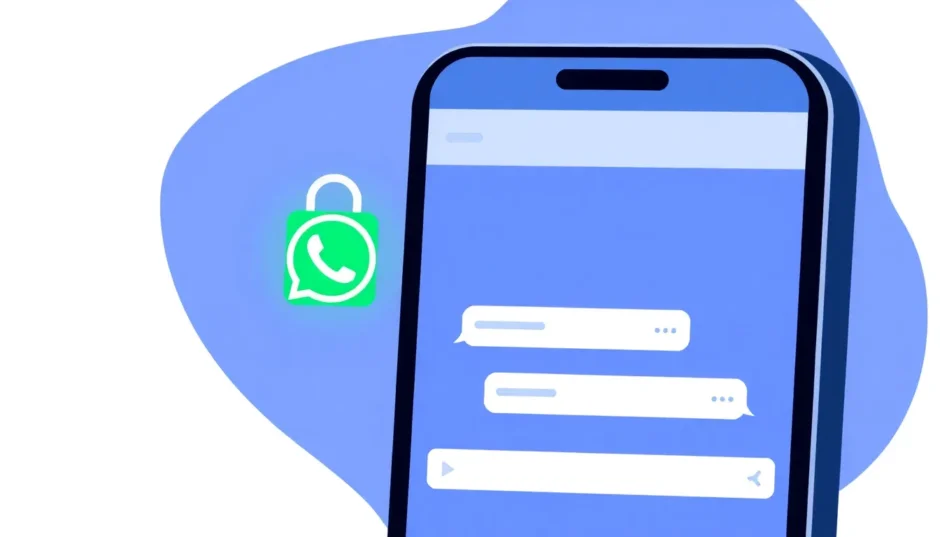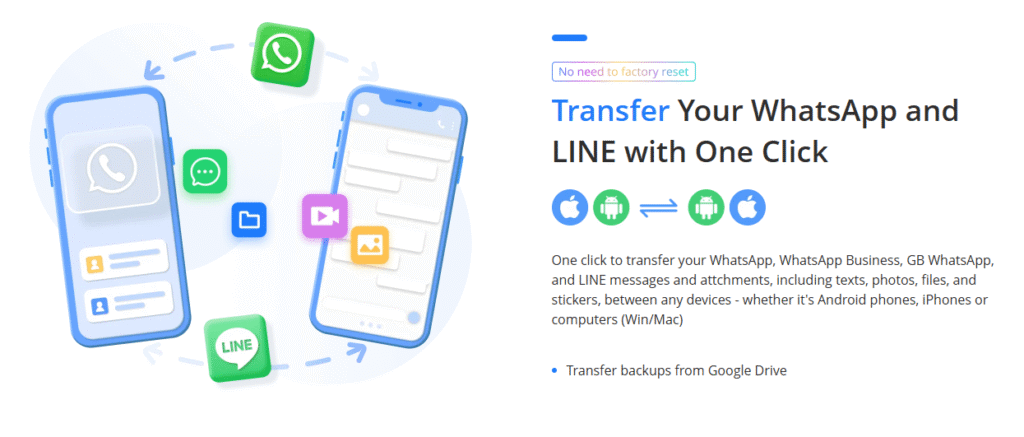TL;DR: Many users frequently ask, “whats my whatsapp username,” often confusing it with a display name or social media handle. Currently, WhatsApp primarily uses your phone number as the main identifier, unlike platforms like Instagram, though a dedicated whatsapp username feature is reportedly on the way. Understanding the current system versus the anticipated username whatsapp implementation is key to managing your privacy.
Have you ever wondered about your username whatsapp on the platform? If you’re searching for a dedicated whatsapp username feature similar to what you find on Instagram or Twitter, you might be surprised to discover that WhatsApp operates quite differently under the surface. It’s a common point of confusion, leading many users to search, “whats my whatsapp username,” only to find the platform doesn’t use traditional usernames for basic identification.
This article dives deep into WhatsApp’s current identification structure, addresses the prevalent rumors about introducing a proper whatsapp username system, and explores what this means for how we connect and maintain our privacy.
Table of Contents
- Understanding WhatsApp’s Unique Identification System
- The Current State of WhatsApp Username Feature
- Rumors and the Future: Introducing the WhatsApp Username
- How to Find What People See as Your Identifier Now
- Privacy Concerns and The Phone Number Dilemma
- Current Alternatives to Hiding Your Phone Number
- WhatsApp’s Identity Approach vs. Competitors
- The Potential Benefits of a Full Username System
- Diving into Future Username System Details (Based on Beta Leaks)
- How to Maximize Privacy in the Absence of a Universal WhatsApp Username
- The Business Case for a Standardized WhatsApp Username
- User Expectations and Platform Evolution
- The Final Word on Finding Your WhatsApp Username
Understanding WhatsApp’s Unique Identification System
Unlike many other social media giants where you craft a unique handle—like an Instagram handle or a Twitter handle—WhatsApp has historically taken a much more direct and phone-number-centric approach. The platform uses your mobile phone number as your primary, fundamental identifier. When someone wants to connect with you on WhatsApp, the prerequisite is usually knowing or having access to your phone number, rather than searching a database for a specific username whatsapp.
This methodology offers simplicity; it cuts out the need to remember yet another password or username combination. However, this direct link to your personal phone number inherently sacrifices a layer of privacy that a dedicated username system could provide. Currently, your phone number acts as your de facto whatsapp username, which necessarily raises legitimate concerns about privacy management on the app.
The Current State of WhatsApp Username Feature
As of now, WhatsApp lacks a traditional, globally unique whatsapp username feature for standard accounts. When you initially set up your account, you are prompted to select a Display Name. This name is what appears in your chats and for others viewing you in group conversations if they haven’t saved your number. Crucially, this Display Name is not a unique identifier; multiple users can share the exact same display name, and you can change it whenever you feel like it.
This is why the question “how to find my whatsapp username” is slightly misdirected in the current context. What users are typically looking for when they ask this is either their customizable Display Name or their essential identifier: their actual phone number. Your phone number is visible to anyone you message or anyone in a group chat with you, based on your current privacy settings.
To check what identifier others currently see, you can easily review your current setup:
- Open WhatsApp.
- Navigate to Settings (or the three-dot menu on Android).
- Tap on your profile picture/name.
Here, you can view and edit the Display Name people see. Remember, this name offers no uniqueness guarantee, unlike a true username whatsapp.
Rumors and the Future: Introducing the WhatsApp Username
The persistent buzz around WhatsApp introducing proper usernames has grown louder, especially following observations from trusted sources like WABetaInfo. These rumors strongly suggest that Meta is actively developing this feature to afford users greater control over their privacy settings.
The idea is fantastic for many users: instead of having to give out sensitive personal phone numbers to casual acquaintances, businesses, or new contacts, you could simply share a unique, private username whatsapp. It’s a shift we regularly see on other Meta platforms, making its absence on WhatsApp a growing point of friction.
If WhatsApp rolls out this anticipated feature, we expect it to mirror established systems on other social media platforms:
- Uniqueness Verified: The chosen whatsapp username will be unique to your account (unlike the display name).
- Privacy Enhancement: Users will have the option to allow others to find and contact them using only this username, effectively hiding their underlying phone number from external parties.
- Beta Testing Confirmation: Reports indicate that development is underway, including systems for username reservation, meaning this change isn’t just speculation anymore.
Reports specifically mention a Username Reservation system being developed. This suggests Meta is aiming for a controlled rollout, ensuring established users can secure their preferred handles before they are all claimed. This reservation system, reportedly seen in beta builds for both iOS and Android, implies that the future whatsapp username will be something you proactively choose and lock in.
How to Find What People See as Your Identifier Now
Since the dedicated username whatsapp feature isn’t fully deployed, answering “whats my whatsapp username” requires clarity on context. For the vast majority of users today, your identifier is intrinsically tied to your phone number.
What others see primarily depends on how they have saved you in their contacts:\
- In Your Contacts: They see the name you (or they) saved for your number.
- Not in Your Contacts/New Chat: They see your registered Display Name.
- In Group Chats: They see both your Display Name and your phone number, depending on your established privacy settings.
If you’re thinking, “how to find my whatsapp username,” and you mean the name people see first, follow the steps mentioned earlier: Settings > Profile to check or adjust your current username whatsapp display name.
Privacy Concerns and The Phone Number Dilemma
The reliance on phone numbers as the core identifier creates inherent privacy trade-offs. Sharing your number opens the door to potential spam, unwanted calls, or contact information being spread across large, unfamiliar groups. This is precisely where the demand for a versatile whatsapp username stems from.
Many users feel forced to choose between seamless communication via WhatsApp and safeguarding their primary contact number. Introducing a standalone username whatsapp feature would decouple contact discovery from real-world identity, aligning WhatsApp more closely with the discovery models of platforms like Instagram or X (Twitter).
Current Alternatives to Hiding Your Phone Number
While we await the full rollout of selectable whatsapp username functionality, there are a few existing methods users can employ to manage their visibility:
WhatsApp Business Profiles: For those using WhatsApp for commercial purposes, Business Profiles allow for a degree of separation. Businesses can list an identity that might not be tied directly to an employee’s personal number.
Group Invite Links: Instead of sharing your number to get people into a community chat, you can generate an invite link. This allows people to join without ever seeing your personal contact details, helping manage the spread of your username whatsapp equivalent.
Broadcast Lists: These are excellent for one-way mass communication without creating a group setting where participants can see each other’s numbers.
Furthermore, some users opt for more robust privacy measures:
- Adjusting Privacy Settings: Regularly review who can see your profile photo, About info, and crucially, who can see your number in groups (Settings > Privacy).
- Secondary Number: Using a secondary number, perhaps a virtual one, specifically for communication channels where you anticipate sharing your contact info more widely.
If you frequently move between phones or need to ensure your chat history moves seamlessly with you, data management becomes paramount. Tools designed for this purpose can offer peace of mind, especially when setting up a new account with a different number where you might want to port your established identity.
iMyFone iMyTrans.Transfer WhatsApp from Android and iPhone directly.Backup WhatsApp from Android/iPhone to PC.Restore WhatsApp messages from Google Drive to iPhone.Preview WhatsApp and LINE data and selectively export.Transfer, Backup, Restore WhatsApp/Line chats, audios, photos, etc.
Check More Details | Download Now! | Check All Deals
WhatsApp’s Identity Approach vs. Competitors
It’s worth contrasting WhatsApp’s traditional phone-number focus with messaging platforms owned by the same parent company, like Instagram Direct, which heavily relies on established usernames. Other competitors, such as Telegram, offer users a far more granular choice, allowing you to communicate primarily via your chosen whatsapp username while keeping the phone number hidden unless you explicitly choose to share it.
This difference highlights WhatsApp’s original philosophy: a tool designed primarily for close-knit, pre-existing contacts (like SMS replacement), contrasting with platforms designed more for public discovery.
The Potential Benefits of a Full Username System
If an official, verifiable username whatsapp system is implemented, the benefits for the user base could be substantial, particularly as WhatsApp expands its role beyond mere personal chats into professional and community spaces:
- Greater Privacy Control: You decide who sees your unique username whatsapp, providing a barrier before sharing your real cell number.
- Simplified Discovery: People can find you without tedious phone number exchanges, streamlining contact acquisition.
- Business and Creator Utility: Businesses can establish memorable branding handles.
Diving into Future Username System Details (Based on Beta Leaks)
Recent deep dives into WhatsApp betas offer a glimpse into what this whatsapp username feature might entail. It won’t just be a simple display name swap; it seems structured for digital identity management:
- Format Requirements: Usernames are expected to be unique, consisting of letters, numbers, periods, and underscores—but restricted from starting with “www.” or ending with common domains like “.com” to prevent impersonation/phishing.
- Discovery Mechanics: A key feature may involve a 4-digit PIN required for first-time contact initiation via username, adding an extra layer of security beyond just knowing the handle.
- Reservation Phase: The reported “Username Reservation” system indicates a planned rollout where users (likely beta testers first) can secure their desired handle early, ensuring those keen on maintaining a consistent username whatsapp across platforms can secure theirs.
How to Maximize Privacy in the Absence of a Universal WhatsApp Username
Until the official username whatsapp feature is widely available, users need to be proactive about their existing privacy settings. Your phone number is your key identifier, so control over who sees it is vital:
- Review Group Privacy: This is often the weak link. Check Settings > Privacy > Groups to ensure only trusted contacts can add you directly.
- Selective Sharing: Be very deliberate about joining large or public groups where members are strangers. Every new person in that group effectively gains access to your number.
- Use Click-to-Chat Links Cautiously: While convenient for businesses, these links inherently share your number. Ensure you are comfortable with the context before using them.
The Business Case for a Standardized WhatsApp Username
For businesses heavily utilizing WhatsApp for customer service or community management, the lack of a standardized whatsapp username is a significant operational hurdle. Currently, they must rely on the WhatsApp Business API or meticulously managed business profiles, which can be clunky for general public outreach.
A true, searchable username whatsapp would streamline customer acquisition significantly, allowing potential clients to find a business without needing to have its contact number already logged in their phone book.
User Expectations and Platform Evolution
Given the rise of messaging apps as primary social and professional hubs, user expectations are rapidly shifting towards greater control over digital identities. When users see robust username systems elsewhere (like on Instagram, where finding a username whatsapp is standard practice), the lack of one on WhatsApp becomes jarring.
WhatsApp started life focused on small, known circles, but its massive growth demands features that support broader, more transactional interactions. This evolving user expectation puts significant pressure on Meta to finally implement comprehensive whatsapp username options, securing WhatsApp’s relevance in the future digital landscape.
The Final Word on Finding Your WhatsApp Username
So, if you’re still asking, “whats my whatsapp username,” the most accurate answer today is this: your unique identifier linked to your account is your telephone number. Your username whatsapp is effectively the number you registered with.
However, the future is clearly leaning toward usernames.
For those who are privacy-conscious or eager to adopt the coming changes, the best approach now is to stay informed about beta rollouts and utilize the existing privacy controls to manage visibility of your current profile information. When the time comes to create your official whatsapp username, having a preferred handle ready will be a huge advantage.
iMyFone iMyTrans.Transfer WhatsApp from Android and iPhone directly.Backup WhatsApp from Android/iPhone to PC.Restore WhatsApp messages from Google Drive to iPhone.Preview WhatsApp and LINE data and selectively export.Transfer, Backup, Restore WhatsApp/Line chats, audios, etc.
Check More Details | Download Now! | Check All Deals
Some images sourced from the internet.
 TOOL HUNTER
TOOL HUNTER 




